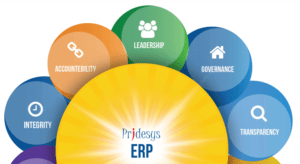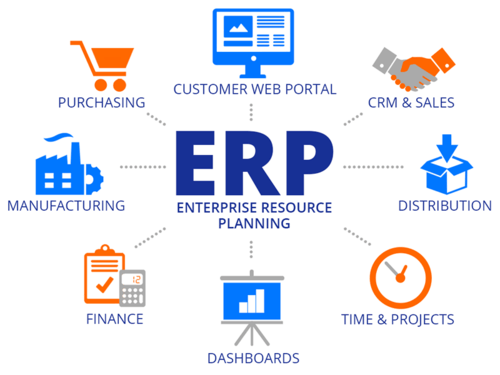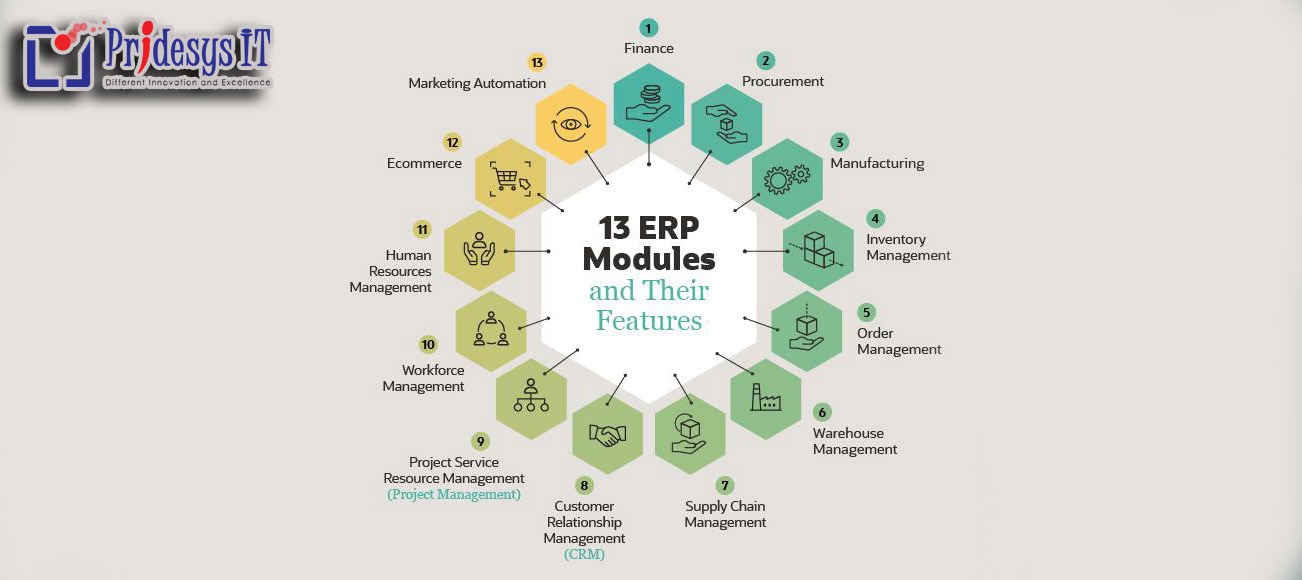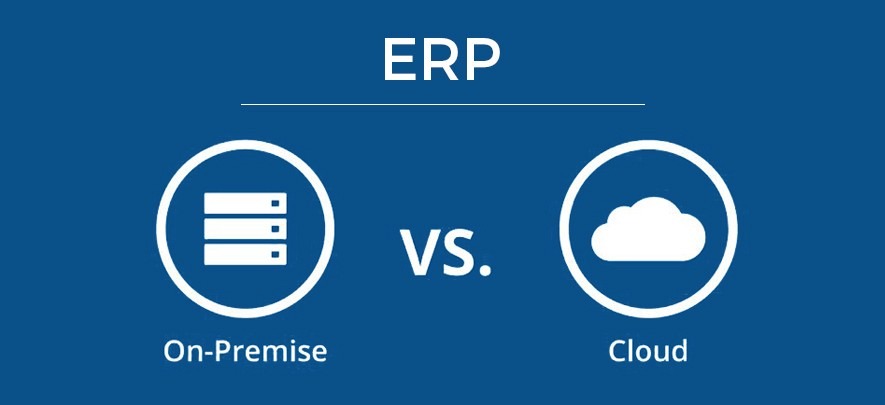ERP Software automates and integrates core business processes such as taking customer orders, scheduling operations and keeping inventory and financial data. It delivers a perfect solution for your business. For the first time in Bangladesh, Pridesys IT created its ERP, called Pridesys ERP. This ERP solution is well known for its scan-ability, robustness flexibility to assist in the business growth of the clients. ERP Software Companies in Bangladesh

We offer Pridesys ERP in modules so that you can select only the modules you require upfront and add modules to your system as your company grows, and requirements change. The modules cover every business process, so your system will be as basic or advanced as your needs demand.
Implement: On-premise, cloud or on your mobile device
The software can be deployed on-premise or in the cloud. In addition, our mobile version of the product provides you access to your business information at any time, from your preferred mobile device, as quickly as if you were in your office.
Security
Your data is the lifeblood of your organisation, and the integrity and security of that data are a top priority. Pridesys incorporates system-wide facilities aimed at securing the system from unauthorised access. Over and above this, a guarantee can be set throughout the system by the user or by role. Securities can also be set per user against transactions, activities and even fields.
What is ERP? All The Things You Need to Know
ERP Software Companies In Bangladesh
What is ERP? ERP frameworks work using a central database. Clients take a gander at dashboards to see real-time information across various business units, for example, sales, supply chain management, and personnel.
Let’s assume you’re in the business gathering breadbox-sized widgets with parts from 10 suppliers. Your laborers gather them manually, box them, and send them range by range to the other side of your warehouse. From that point, the people in transportation and getting send the boxed widgets out when they get pinged from sales. Every one of the widgets goes out each or two, in turn, using the USPS or a short-term dispatch administration. The business is occasional, and widgetophiles are just purchasing widgets in the spring and fall. Be that as it may, the business is getting more cutthroat, and widgets, while not yet aware, are getting more cost delicate. You want an upper hand.
What Does Enterprise Resource Planning Mean?
ERP – – short for enterprise resource planning – – is an incorporated arrangement of software applications that permits an association to deal with its business processes utilizing a centralized social database. It permits a business to see a depiction of how productively its key functions – – for instance, inventory levels or sales, personnel – – are cooperating. Thusly, it can all the more likely arrange how to utilize its centralized resources across the enterprise – – henceforth, ERP.
ERP frameworks regularly contain dashboards associated with a central database that let clients see real-time information across various business units. Contingent upon the refinement of the ERP vendor, individual modules might have various submodules that can be added to reflect how your business works.
For what reason Do You Need an ERP System?

What might an ERP framework do for you? All things considered because various applications are incorporated in an ERP framework, the sales group taking requests via the telephone can perceive the number of widgets is left in inventory out of nowhere – – in any event, representing online orders that sidestep customer administration reps. Manufacturing is taking a gander at similar information and knows whether or not to increase gathering on the line. Your believed suppliers are automatically advised when parts are low. Also, delivery can represent everything being transported and when it shows up at its objective.
It’s not difficult to perceive how much quicker you can work when these undertakings are automated. It’s additionally simple to perceive the amount more practical it is the point at which you’re purchasing incorporated ERP software rather than individual applications.
Yet, numerous modules may not check out for an organization your size. For instance, assuming you’re working a little or medium-sized business, you likely needn’t bother with an application that organizes multimodal and cross-dock activities. Likewise, while you certainly need a human resource – – or human capital, as certain vendors call it – – module, the requirements of your 65-man organization are immeasurably unique about those of a huge enterprise. Along these lines, while you’ll require an HR module that incorporates time and work management, nonappearance management, and cost management, you likely needn’t bother with a progression management module.
Why Are ERP Systems Important?
ERP software integrates modules that used to be divergent bought applications, which decreases capital and working costs. The best advantage of an ERP framework is real-time visibility of your everyday tasks, giving up-to-the-second data on accessible resources and the advancement of orders and drives. That visibility works on functional productivity and benefit. Furthermore, that visibility can be broadened so suppliers, accomplices, transporters, and other believed gatherings can share information.
Functions that recently must be performed physically should be possible all at once in an ERP framework. For instance, the sales department takes a request for widgets. Rather than checking with the warehouse independently, the sales group can find in real-time the number of widgets are accessible in the warehouse when it takes the request. Stretch out that to the remainder of the enterprise and envision those supervisors in the advertising and correspondence department can figure out whether their messaging is working. Sales chiefs can all the more likely gauge, and the accounting department will have less slack time in compromise.
An ERP framework is based upon information, so information relocation from existing databases is critical. Moved information should be cleansed of immaterial, wrong, and duplicate matter.
Instances of ERP Modules:

Supply chain management (SCM): SCM is the expansive scope of exercises expected to plan, control and execute a product’s stream from materials to production and afterward to dispersion in the most effective manner. SCM integrates planning and execution of normal cycles. It additionally upgrades the progression of materials, data, and capital in functions that incorporate obtainment, production, inventory management, strategies, armada management, warehouse tasks, and transportation.
Human resources: Sometimes called human capital management (HCM), HR software can achieve various undertakings, like advantages organization and finance, by associating submodules that generally would warrant their independent applications. Functions additionally ordinarily incorporate execution assessments, enlistment, and vocation advancement.
Online sales: Also known as a web-based business, the online sales module permits you to see changes in costs, index, inventory, and the supply chain, and have those changes reflected in customer-facing messaging. ERP vendors offer internet business applications for all sales channels, whether B2B, B2C, or C2C. Preferably, this module permits you to oversee both customer and wholesale channels on a single platform. Online sales ERP applications can likewise let retail or wholesale accomplices update product data on their end.
On-Premises ERP versus Cloud ERP:

Cloud ERP is a sort of enterprise resource planning software that sudden spikes in demand for a provider’s cloud computing platform, rather than on-premises in an enterprise’s data place. Before the concept of present-day cloud computing was created during the 1990s, ERP systems ran on legacy platforms at the proprietor’s facility.
One advantage of utilizing a cloud-based ERP framework is that you can easily update applications. Enterprise data may be safer as well assuming the cloud service provider stores it on redundant offsite servers. There is also a financial consideration. On-premises ERP systems are generally accounted for as capital costs because the venture is lumped into upfront costs, while cloud ERP systems, are considered operating costs.